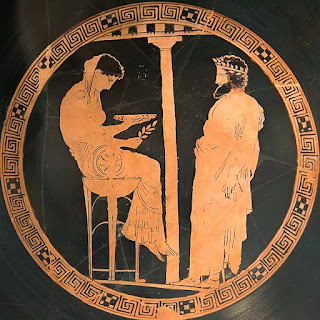Since the accusation has been made that God endorses slavery, I began in yesterday’s post to examine the subject of slavery in Israel to ask whether God, in fact,
endorsed it at all. Let’s continue with a second relevant principle to bear in mind.
Two Principles Worth
Considering (continued)
As established yesterday, the fact that God tells his
people to obey laws in general does not mean they are good laws or that he approves of them.
But this case is different. The objection may well be raised that the Mosaic Law is not like ‘laws in general’ in that it came directly from God, and said exactly what he wanted it to say.
However, even the Law of Moses did not perfectly represent God’s will, preference or desire for his people. This may initially sound a bit heretical, but God was not ‘ok’ with some parts of Israel’s Law, especially when they were slavishly and literally followed rather than used as a guideline to discern a higher, more loving intent. Those who merely followed the letter of the Law doing the minimum possible would inevitably fall short of God’s real purpose.
Principle #2: The Law
did not represent God’s perfect will.
The Law in its written form (the ‘letter’) represented whatever diluted version of God’s will
that his people might reasonably and generously be expected to follow, given
that they were a mixture of believers and unbelievers characterized by stubbornness, selfishness and rebellion from
Day 1. And even so, Joshua told the Israelites who promised to obey the law
that
they wouldn’t be able to keep it.































